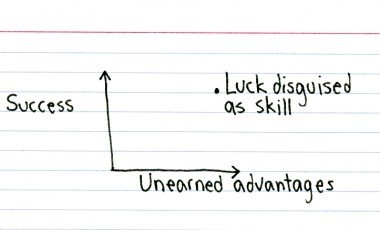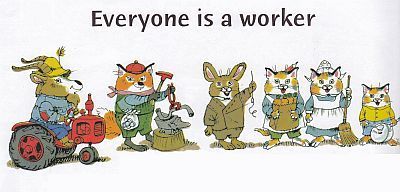Drew Myron's Blog, page 55
January 21, 2014
How I Learned: Books that Teach
Can poetry be taught?
What's the best way to encourage others to write?
And where do I start?
When I led my first writing workshop nearly 10 years ago, I didn't know much. While I was equipped with enthusiasm, I wasn't a teacher. I didn't know how to manage a classroom, or even a handful of youngsters, but I was eager and energetic. So I did what I always do; I looked to books to show me how.
Since that first workshop, with a group of teens, I've worked with writers from age 8 to 80 — in schools, homes, art centers and summer camps. We've written together in classrooms, in parks, in restaurants, on bridges, and on mountain trails, and I'm grateful for books that provided me the confidence and knowledge to teach.
Wondering how to infuse your classroom or community with poetry? Read these!
Books that Teach the Teacher
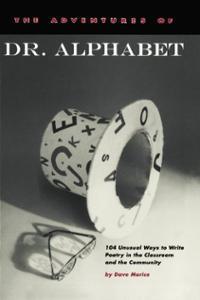
The Adventures of Dr. Alphabet:
104 Unusual Ways to Write Poetry in the Classroom and the Community
by Dave Morice
This zany, inventive book is an excellent guide on taking poetry to the streets — and everywhere else! It's packed with easy-to-accomplish projects that will ignite writers of all ages, especially children. Want to prove that poetry is lively, accessible and fun? These are my favorite Dr. Alphabet activities:
BananaVerse — Yes, that’s right, banana as canvas for poetry!
Rock Poetry — Write on a rock, a leaf, a stick, a stone.
Poetry Poker — This is my all-time favorite, and always a hit with kids.
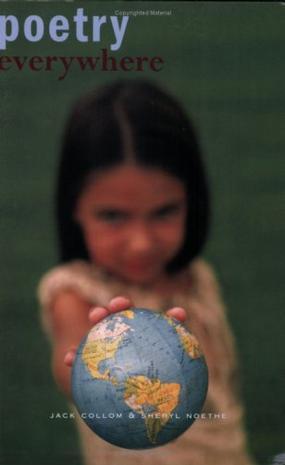 Poetry Everwhere
Poetry Everwhere
by Jack Collom & Sheryl Noethe
Where Dr. Alphabet is wacky and wild, Poetry Everywhere is more measured and reflective. This bestselling book is a valuable guide for those working with children. It's packed with 65 proven writing exercises, and more than 450 example poem by students, teachers and accomplished poets. As a teacher, this provided me with a solid understanding of writing prompts and tips on how to lead a poetry session. My favorite prompts include: I Remember Poems and Going Inside Poems.
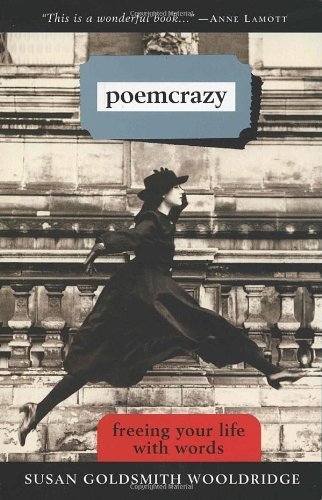 Poemcrazy: Freeing your life with words
Poemcrazy: Freeing your life with words
by Susan G. Wooldridge
My copy of this book is so loved and worn that I can barely make out the words for the post-it notes marking every other page. I've given this book as gift more times than I can count, and when I'm feeling lost in the literary forest of "why bother?" I turn to this gem again and again. Offering a gentle blend of writer's reflection and practical prompts, this guide is, in the words of Anne Lamott, "smart, wide-eyed, joyful, helpful, inspiring."
Wooldridge's first-hand experience as a poet-in-the-schools provides practical knowledge, but these exercises — and the spirit of this book — extend far beyond any classroom assignment.
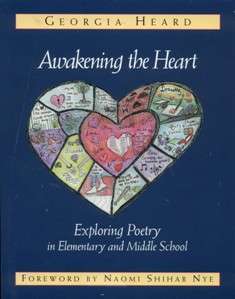 Awakening the Heart:
Awakening the Heart:
Exploring Poetry in Elementary and Middle School
by Georgia Heard
Both inspiring and practical, this how-to guide goes deep. Teaching poetry is more than teaching terms (stanza, iambic, etc) and Heard understands that young writers need to first feel comfortable and safe. She shares tips and tricks to create an environment that encourages self-expression, and then introduces poems and activities that will engage young writers. Equipping the teacher with tools is the first step, and with a heart that can open other hearts is the next.
Do you teach? What books have you found helpful?
January 16, 2014
Thankful Thursday: Out of Luck?
You set up a structure: Be thankful. Be bright. Cheer on. Cheer up.
But some days you're cranky. Luck has left, and your bootstraps are broken. Some days are weeks.
I'm short on gratitude today. Yes, yes, I appreciate what I have but my thankfulness is tired and dull.
Still, the show goes on. Show up. Shine on.
This week, kids, it's up to you.
It's Thankful Thursday. Please join me in a weekly pause
to appreciate people, places & things.
What are you thankful for today?
January 14, 2014
Why I don't write love poems
It’s hard to write love poems because the tendency is to swoon, and it’s hard to swoon in an original way.
— Cecilia Woloch
(who shows great restrain in the poem below )
On Faith
How do people stay true to each other?
When I think of my parents all those years
in the unmade bed of their marriage, not ever
longing for anything else—or: no, they must
have longed; there must have been flickerings,
stray desires, nights she turned from him,
sleepless, and wept, nights he rose silently,
smoked in the dark, nights that nest of breath
and tangled limbs must have seemed
not enough. But it was. Or they just
held on. A gift, perhaps, I've tossed out,
having been always too willing to fly
to the next love, the next and the next, certain
nothing was really mine, certain nothing
would ever last. So faith hits me late, if at all;
faith that this latest love won't end, or ends
in the shapeless sleep of death. But faith is hard.
When he turns his back to me now, I think:
disappear. I think: not what I want. I think
of my mother lying awake in those arms
that could crush her. That could have. Did not.
— Cecilia Woloch
from Late
January 10, 2014
Thankful Thursday on Friday
What can I say?
It is better to have loved and lost
Than to put linoleum in your living rooms?
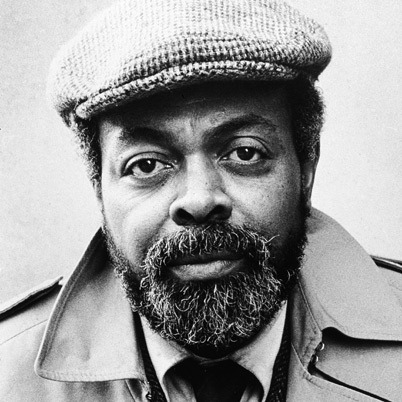 LeRoi Jones, aka Amiri Baraka, has died.
LeRoi Jones, aka Amiri Baraka, has died.
As a white, middle-aged woman living on the West Coast, I have nothing in common with the African-American male, beat poet and political activist, who, after the death of Malcom X changed his name to Amiri Baraka.
But here's where poetry bridges, rather than divides.
When I met Baraka, I was 21, alone, broke and living in New York. Searching for free entertainment between a (unpaid) college internship and a ticket-taker gig at the Metropolitan Museum of Art, I spotted a few lines in the Village Voice announcing a poetry reading.
It was one of those early-dark evenings and, not a skilled navigator, I walked in circles until I found the address — which, it turned out, was a tony Upper East side home. A private home! What was I doing here, in an intimate and well-appointed living-room like setting? I didn't know much about poetry, and had been to only one reading (a dim coffeehouse, wrenched in creative desperation).
I don't remember many specifics — what he read, wore or said — just that we sat, audience style, in rows of upholstered chairs, and he filled the room with a poetic and powerful radiance. No joke. He had presence. And it didn't matter that I was young, white and poetically and politically naive. I was moved; In that room, I felt the power of poetry.
A few months later, my internship concluded, I headed back to college in Colorado. With poster board and magic marker, I copied the lines above, and fastened them, wall-to-wall mural style, to my spare studio apartment. Although I didn't "get" the poem, those words stirred me, made me want to push into that mysterious and lofted space where language, message and emotion so beautifully mesh.
Thank you, LeRoi/Amiri, for opening the door.
In Memory of Radio
Who has ever stopped to think of the divinity of Lamont Cranston?
(Only jack Kerouac, that I know of: & me.
The rest of you probably had on WCBS and Kate Smith,
Or something equally unattractive.)
What can I say?
It is better to haved loved and lost
Than to put linoleum in your living rooms?
Am I a sage or something?
Mandrake's hypnotic gesture of the week?
(Remember, I do not have the healing powers of Oral Roberts...
I cannot, like F. J. Sheen, tell you how to get saved & rich!
I cannot even order you to the gaschamber satori like Hitler or Goddy Knight)
& love is an evil word.
Turn it backwards/see, see what I mean?
An evol word. & besides
who understands it?
I certainly wouldn't like to go out on that kind of limb.
Saturday mornings we listened to the Red Lantern & his undersea folk.
At 11, Let's Pretend/&we did/& I, the poet, still do. Thank God!
What was it he used to say (after the transformation when he was safe
& invisible & the unbelievers couldn't throw stones?) "Heh, heh, heh.
Who knows what evil lurks in the hearts of men? The Shadow knows."
O, yes he does
O, yes he does
An evil word it is,
This Love.
— Amiri Baraka
It's Thankful Thursday (err, Friday), a weekly pause to appreciate the people, places and things in our lives. What are you thankful for today?
January 8, 2014
Bruce, the Unexpected Poet
Streets of Philadephia, written and performed by Bruce Springsteen, from the 1994 Oscar-winning movie Philadelphia.
A few times each year, often during the bleak midwinter, I revisit this song. I'm not what you would call a Springsteen "fan" but this song stuns me every time. It's such a powerful mix of melancholy music, plain-spoken language, and gravelled voice.
It happens with other singer-songwriters too, usually drawn from the long corridors of my past: Jackson Browne, Sarah McLaughlin, Tracy Chapman. . . I am shaken and taken, hushed.
Do you have a song that stills you and fills you, a song that moves quietly in you?
January 2, 2014
Thankful Thursday: Mission Statement
 thankful • drew myron • jan 2014
thankful • drew myron • jan 2014
It's Thankful Thursday, a weekly pause to appreciate the people, places and things in our lives. Joy contracts and expands in proportion to our gratitude. What makes your world expand?
December 30, 2013
What Did You Give?

A book is a gift you can open again and again.
— Garrison Keillor
Is there any gift better than a book?
Aside from cashmere, books are my favorite gifts — to give and receive. As the new year approaches, I'm happily curled up and reading. It seems the ideal way to wrap up this year, and roll into the next.
What I Gave
Tiny Beautiful Things:
Advice on Love and Life from Dear Sugar
by Cheryl Strayed
This is the book I wish I had in my struggling 20s and early 30s. In this tough but tender book of "advice" Sugar — the anonymous online columnist at The Rumpus — offers compassion, insight and unvarnished honesty. Sugar's (aka Cheryl Strayed) got wit, warmth and a winning writing style.
Wild
by Cheryl Strayed
I didn't want to like this book. All the hype turned me away. But I finally gave in, and — surprise! — loved it so much I gave it as gift. It's good, really good, and worth Oprah's every gush and cheer. Read it now, before the movie comes out (starring Reese Witherspoon).
Note: I didn't intend for this to be the Cheryl Strayed Christmas but, really, she is good. See my other Strayed fave, from 2008: Torch
Don't you love when you're mindlessly going about your day and trip upon a book that takes you back? When I spotted this book in the used section, I recalled a dear friend who introduced me to the great Joan Didion. The essays in Slouching Towards Bethlehem revealed to me the timeless power of "literary" journalism, and The Year of Magical Thinking broke me open with its truth and power. And so, I had to buy this book for my friend. She probably has it already. But that's okay. Sometimes a book is a tool, an object of thanks.
Tune In - The Beatles: All These Years
by Mark Lewisohn
At 944 pages, this tome either serves as absorbing tell-all or an overly researched snooze. I'm not ambitious enough to find out where it falls, but the recipient of this book — the first volume in a biographical trilogy (yes, that's three!) — tends to enjoy challenges of literary endurance.
What I Got
Faber & Faber Poetry Diary
Yes, I still keep a desk calendar, as in, a paper book with pages and dates. I adore my new day planner, or diary, as the British say. A treasure from one of the last great publishing houses in London, the Faber & Faber planner features 40 poems from writers ranging from Chaucer to contemporary poets. This is such a great gift, and I can't wait to fill its pages with deadlines and dates.
Ex-Boyfriend on Aisle 6
by Susan Jackson Rodgers
The best books have an inscription. A handwritten note tucked inside the first pages harkens to days when books and friendships were more permanent, less ephemeral. I'm eager to read this collection of short stories by a professor at Oregon State University, but not because of the engaging title or the contemporary writing style; I'm most touched that this is a gift from a student who, having enjoyed this book, wanted to share it with me.
And really, isn't that the best gift of all?
last of the great independent publishing houses in London - See more at: http://www.faber.co.uk/about/#sthash.... 40 poems from Chaucer to contemporay poets. And here's a bit of new-to-me literary trivia: Founded in the 1920s, the Faber poetry list was shaped by the taste of T. S. Eliot who was its guiding light for nearly forty years.
How about you? What books did you give, and what books did you get?
December 18, 2013
Rush & Hush: Notes on a Season
 1.
1.
When Silent Night plays through scratchy speakers, my arms are full of ribbons and wrappings and stuff that seems both necessary and not.
I know the music is canned, played over and over to wrench mood and money from frazzled shoppers like me. In this elbowed crowd, my resistance is low and I’m broadsided by children singing, sweet and serene.
Sometimes a music box version turns me inside out, my knees buckled in a gentle sort of grief. I am in a church, or driving a dark road, or in the center of a busy store. I am washed in a soft yielding. Today, under fluorescent lights, I am near tears, aching.
2.
You know this too, don’t you? A song. A gesture. An everyday act that, in this season, delivers a mix of longing and love. While everything threshes and thrums, it's a gift, really, to hold tenderness as it carves through you.
3.
I find myself repeating these words: “There’s no rush.”
But, of course, there is. Everything is verb: shop, wrap, pack, prepare, cook, wash, dress, drive, eat, drink, smile, repeat. When we slow enough to feel, we feel too much. The power of quiet is in what it reveals, a crystalline quality that clarifies.
4.
Almost always, I’m hungry for quiet. On road trips and day drives, my eyes search the landscape for library and church. I like them modest, small. And empty. I don't usually go in, but I like to know calm stands still and willing.
“Chapels are emergency rooms for the soul,” writes Pico Iyer in Where Silence is Sacred. “They are the one place we can reliably go to find who we are and what we should be doing with our own lives—usually by finding all we aren’t.”
5.
Tonight, fishing boats dot the winter horizon, and I find comfort in bright lights against a pitch sky.
6.
How to quiet the mind from its endless babble? How to still the flutter, the caw? To just be is difficult. Is essential. Quiet has its pull.
“My feeling is that the paths of poetry and of meditation are closely linked,” says Jane Hirshfield. “One is an attentiveness and awareness that exists in language — the other an attentiveness and awareness that exists in silence, but each is a way to attempt to penetrate experience thoroughly, to its core.”
7.
In these days of early dark sets a nest of sadness, and one-by-one we place our hearts in the spot tangled with loss, and longing, and grief.
Silent night, indeed.
8.
“I try to take time to let go, to listen, in much the same way that I listen when I am writing,” writes Madeleine L’Engle in Walking on Water. “This is praying time, and the act of listening in prayer is the same as listening in writing.”
Increasingly, I seek this intersection.
9.
Driving home last night, a brilliant light hung low in the sky. Is it a star, we wondered, or plane, or planet, or god? I wanted to believe it was the north star (though we were heading south) and that it carried meaning and message.
Star of wonder, I whispered, wishing.
We traveled through the dark, the light leading us home.
December 16, 2013
West of 101 - Winner!
Congratulations to Trish Bailey, winner of West of 101, the newest book of poems by Ruth Harrison.
Thank you — each and every reader and writer — for taking part in this book giveaway. In my world, you're all winners.
What now? After the fun & falderal . . .
You can buy the book here.
You can read interviews with Ruth Harrison and other writers, here.
You can go forth and write your own poems.
December 11, 2013
Thankful Thursday: Richard Scarry
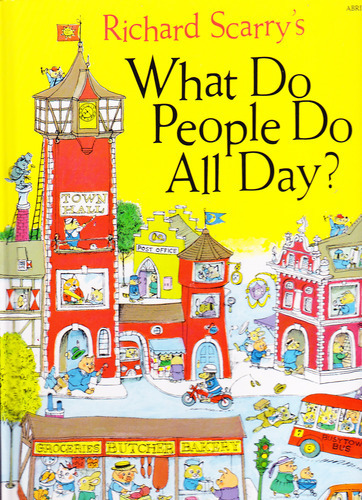
Mother Pig. Grocer Cat. Farmer Alfalfa. Lowly Worm.
Didn't you love this book?
Richard Scarry's wonderfully busy and oversized What Do People Do All Day? taught me to delight in life's details.
Published in 1968, Busytown was bustling and I was whisked into a world in which illustrations and text were energetically entwined in vignettes of endearing anthropomorphic animals building houses, sailing ships, flying planes, keeping house, growing food, and more.
This classic encouraged inquiry: What do you do? How do you do it? Coupled with Joan and Roger Bradfield's Who Are You?, my life as a writer — probing, poking, pondering — is rooted in these, my first books.
Scarry wrote and illustrated more than 250 books. By the time he died in 1994, he'd sold 100 million books worldwide. Over the years, his works have been updated to reflect changing social values, an alteration that is occupying original readers and increasing the value of the first editions.
Can a book change your life? Maybe not. But as a child I spent hours poring over Scarry's sprawling work, learning words and worlds. This book shaped my mind and, in turn, my life. Thank you Richard Scarry. Thank you.
It's Thankful Thursday. Please join me in a weekly pause to express appreciation for people, places, books and more. What are you thankful for today?

